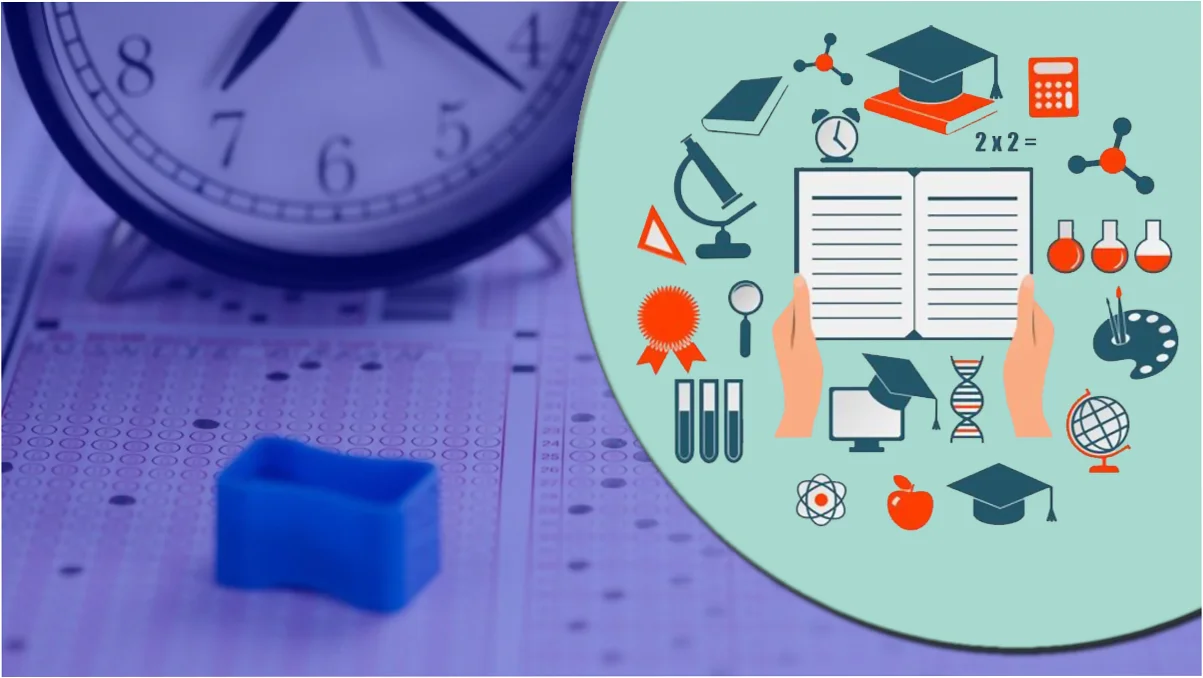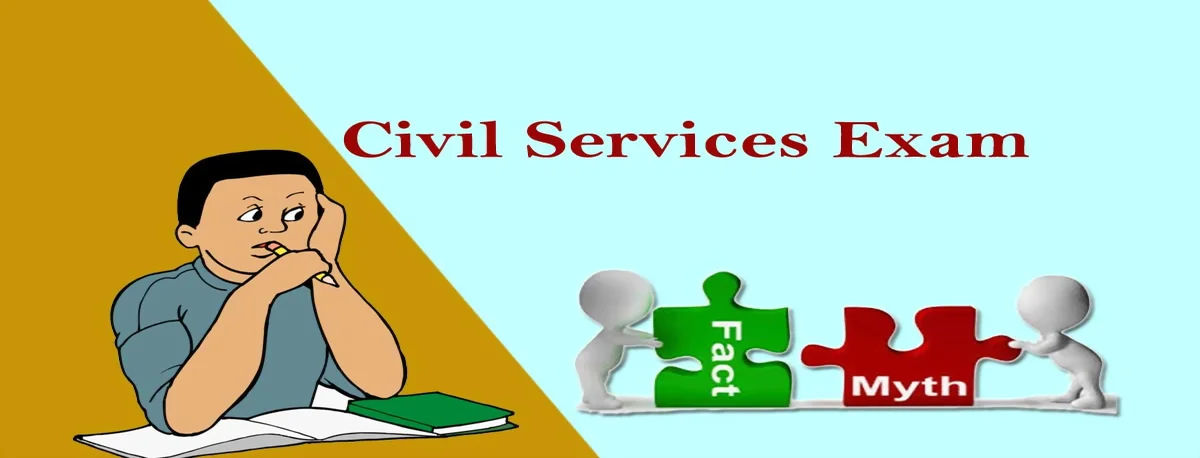The UPSC Civil Services Exam is one of the most prestigious exams in India. Every year, thousands of people put forth a lot of effort to pass the test, but very few of them are successful. Since it is given with the most enthusiasm, the first try a candidate takes to pass this exam is the most important of them all. Don’t simply aim to pass the exam if it’s your first time taking it; you should also succeed on your first try. Previous test takers are an excellent source of knowledge when it comes to learning how to pass the examination.
Many of you may feel motivated to serve the country as an IAS Officer, but you may not know where to start your preparation or whether you have the resources and support required to pass the most difficult exam in the world. Maintaining the preparation’s forward momentum till the objective is attained is the hardest obstacle for any aspirant. In this essay, we’ll go over the strategy and tools you’ll need to ace this test.
Strategy to Crack UPSC Exam in 10 points:
- Beginning: Start with NCERT (Class 6-12) and clear your basics. Revise all the topics at least 4 to 5 times.
- Coaching or self-study: The idea that tutoring is necessary for passing the UPSC is untrue. Although coaching does lessen your effort, self-study is still a viable option for passing this exam. Having said that, you can pass this exam without tutoring if you have the right tools and advice.
- Large versus tiny cities: Again, it is a myth that you need to plan for big cities, but I strongly advise against wasting your time and money on it. If you have access to the necessary online resources, you can study for this exam from anywhere in the globe.
- Discussion is the key: For UPSC preparation, one should form common groups and actively engage in subject-related discussions. Your common problems can be effectively resolved through peer learning.
- Smart study: Study what is needed, do not waste your time by studying irrelevant material. Stick to your syllabus.
- Stay away from negativity: The UPSC exam is a marathon! At first, you should run slowly rather than quickly. There will be times when you feel unmotivated, but hold onto your hope and remain composed.
- This exam can make you an intellectual: Although the UPSC exam is very important, your physical and mental health should come first. So keep in mind that just one percent of applicants will be chosen, and while you might or might not be one of them, the things you learn while preparing will ultimately help you achieve great things in life.
- Practice: The key is practice. The main exam is the most important part of the exam, and you must write your answers in 150-250 words. Practice answering questions in the allotted time.
- Keep revising and manage your time well: Continue revising as much as you can. Many people will also tell you that you must study for 16 hours a day to pass the UPSC. That is not true, and it can lead to burnout and impair performance. Eight hours of dedicated study per day is sufficient to pass the exam.
Significant Suggestions to Get You Ready for the UPSC Exam
#1 Study the Syllabus
A thorough understanding of the syllabus’s nature, clarity, and scope is essential for effective preparation. It assists in determining what to read and what not to read. The exam questions are always from the syllabus, so keeping a close eye on the syllabus is essential. The most important requirement for civil preparation is a thorough understanding of the subject. Although the Civil Services are known for their extensive and in-depth curriculum, many applicants fall short at this stage. A thorough understanding of the syllabus’s genre, clarity, and breadth is required for successful study. It helps to determine what should be researched and what should be avoided.
#2 Get to Know the Course Material
Any exam revolves around the curriculum. You must first understand the curriculum before you can begin reading the books. This will help you decide what to read and what can be skipped. Because all examination questions are based on the syllabus, keeping an eye on them is critical. The UPSC has provided a comprehensive curriculum for the CSE examinations. Students should also be aware of the entry requirements for the exam.
#3 Develop the Habit of Reading Newspaper
To get a better understanding of the test, go over all of your previous papers. This will provide you with a summary of the major section as well as the questions that will be asked frequently. It is critical to go over each question thoroughly because this will help you focus on the concepts and themes that UPSC has prepared for the questions. You can also gauge your readiness by reviewing previous examinations. If you want to be an IAS officer, you should understand that reading newspapers is an important part of your CSE training. Keep up to date on what’s going on in the world. Actual events and concerns are real issues that can be learned about by reading the news.
#4 Focus on Current Affairs
All of the syllabus themes with test-relevant information are current events and issues. Every week, read one newspaper and one magazine. Keep up to date with what’s going on in the world. Current events are not a separate subject to be studied, but rather an integral part of the UPSC curriculum.
#5 Coaching for the Civils
Coaching is essential for passing the Civils. Finding the Best IAS Coaching in Delhi is critical because it will lay the groundwork for your Civils ambition. Pay attention to the lectures and take notes as you go. Coaching organizations also provide exams that can be used to assess one’s current level of preparation.
#6 Concentrate on key concepts
Be aware of what is happening throughout the world. In actuality, the most dynamic areas are current affairs and modern issues. Read one national newspaper every day, and maintain adding the most recent information to all of the curricular themes.
Instead of rigorous studies, studying smartly is the best option. What does it mean to study wisely? It entails comprehending the nerve of the exams and adapting accordingly. The core principle of smart study is to read important exam material.
#7 Study the pattern
Examine the test questions from prior years if you’re an applicant. It aids in determining the questions’ nature as well as the appropriate place to find reading information. An examination of prior years’ papers aids in putting the syllabus into better perspective and reveals the subjects that have generated the most inquiries. Candidates can benefit from taking practise exams. These exams aid all candidates in their mains preparation as well as in understanding time management. Write every day to improve your skills. Create a question about a newspaper editorial or a subject from the syllabus, then write the answer.
#8 Employing your resources
A key component of UPSC preparation is making sure the knowledge you learn from books or media is applicable. To fit a fact or piece of information in the best method, you must be intelligent. Keeping up with current events is made easier with the aid of the internet. However, one resource that candidates should use to add value to their preparation is the Internet’s usability.
#9 Concentrate on the following key words:
After reading a topic several times, take short notes to serve as an oxygen canister during exam days. Look for keywords both during preparation and while taking the exam. Every question, for example, would have a question tag such as “critically analyse,” “discuss,” “elaborate,” “comment,” and so on.
Advantages of UPSC Online Coaching
UPSC Online Coaching is the best way to prepare for the UPSC. Some of the major advantages of UPSC Online Coaching are as follows:
- Recorded Lectures: Since all of your live sessions will be recorded, you no longer have to worry about missing class.
- Test Series: Conducting mock exams is an essential part of your UPSC preparation, and with Career Launcher’s online UPSC coaching, you’ll have access to the All-India Mocks, which will let you compare how well you did with others from around the nation.
- Time-Saving: Because you can prepare from home and do not have to travel long distances for your UPSC Preparation, you will be able to maximize the amount of time you spend on preparation.
- Skilled faculty: A guiding light makes our journey much easier. Career Launcher’s UPSC Online Coaching can assist you in this regard by connecting you with expert faculty whose knowledge can assist you in passing the UPSC Exams.
Important Sources for UPSC Preparation
- Polity : M Laxmikant
- Art and Culture : Nitin Singhania
- Ancient History : RS Sharma or Tamil Nadu NCERT
- Medieval History : Satish Chandra
- Modern History : Rajiv Ahir
- Economy : Ramesh Singh and Sanjeev Verma
- Physical Geography : GC Leong
- Indian Geography : NCERT and Majid Hussain
- Atlas is a must for Geography (Orient Black Swan for World Atlas and Oxford for Indian Atlas)
- Environment and Ecology : Shankar IAS
- Ethics : Lexicon
- Current Affairs : The Hindu, PIB, PRS, RSTV
Having self-confidence and maintaining motivation are the two factors that make the difference between success and failure during UPSC preparation.
Because Henry Ford once remarked, “Whether you think you can, or you think you can’t, you are right,” you should have confidence in yourself and be sure that you will pass this exam. Happy New Year!


